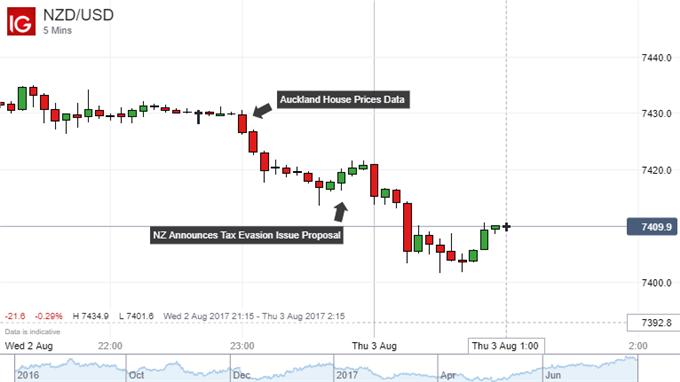Talking Points:
- NZ Dollar fell with local bond yields, hinting at ebbing RBNZ rate hike outlook
- Selloff followed data showing Auckland house prices fell on weak sales volumes
- Government plan to fight tax evasion looks to have compounded selling pressure
Have a question about why the New Zealand Dollar did what it did? Join a Q&A webinar and ask it live!
The New Zealand Dollar continued to fall after a lousy day on Wednesday. The currency fell alongside local front-end government bond yields, hinting at ebbing RBNZ interest rate hike bets as the inspiration behind the selloff.
First, a report from Barfoot & Thompson, the country’s largest privately owned real estate company, showed median house prices in Auckland fell 4.1 percent in the past three months as sales volumes dropped to the weakest since 2010.
Next, the government unveiled a proposal to address multinational tax evasion. The measures are expected to generate extra NZ$200 million per year according to calculations presented by New Zealand Finance Minister Steven Joyce.
Both developments appear to undermine the case for RBNZ rate hikes. The central bank opted to use macroprudential tools to cool the buoyant housing market. If prices are indeed falling, rates can be allowed to remain lower for longer to encourage a return to on-target inflation.
Meanwhile, the government’s tax evasion plan might trim consumption, hurting growth and thereby cooling price pressures. Needless to say, this too might see the RBNZ delaying tightening (although it ought to be noted that markets are still pricing in at least one rate increase in the next 12 months).







